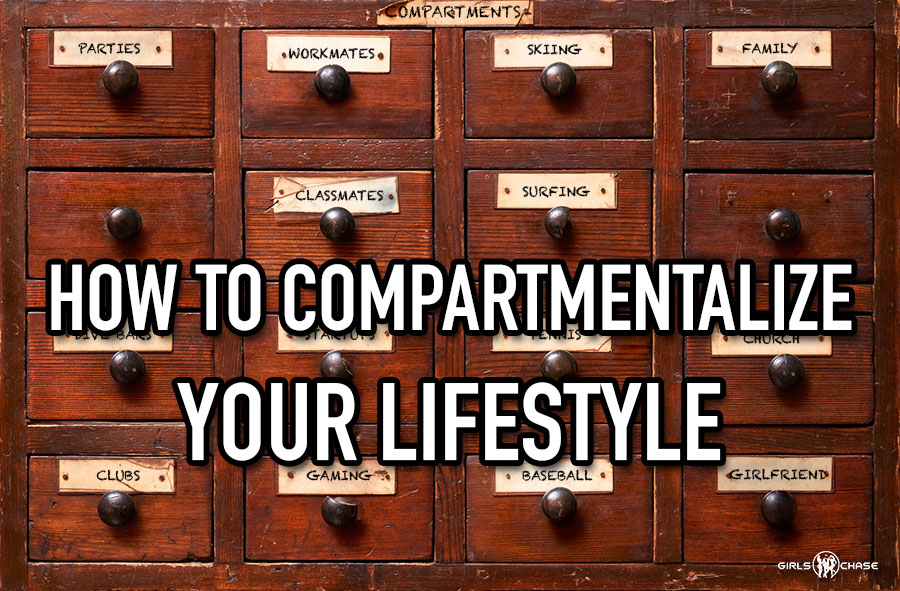
You can't win every fight. But how you handle the situations where you must back down a bit determines how those you're in the fight with treat you.
Jimbo commented in my article on meeting girls while staying safe in a paranoid dating society, asking me to review a recent, controversial article on the Washington Post. The article was titled "Thanks for not raping us, all you 'good men.' But it's not enough."
The article itself is a screed against the male sex, both the 'bad men' who aren't conciliatory and inclusive enough toward women, and the 'good men' who are, but who lack the spine to put the bad men in their place and don't in any event ever really change things to make the world a sufficiently female-inclusive one.
I don't want to comment much on the argument itself... I don't think I need to, given our audience. The positions and arguments are nonsensical; the beliefs hyperbolic. The vast majority of commentators in the comment section of the article take the author to task for her abusiveness toward her cowed, yoked husband.
And I'll comment only briefly on the dynamic. It looks like the dynamic you get in a long-term relationship with a strong-willed, opinionated woman, and a quiet, acquiescent man. The woman becomes increasingly emboldened, abusive, and sometimes vampiric over time. The man, with his quiet acceptance of her behavior, serves as her enabler and as a source of narcissistic supply. You can have this dynamic with the sexes reversed too: domineering husband, codependent/enabling wife, or domineering wife, codependent/enabling husband. It's an unhealthy dynamic for both parties, and it's created by both parties. A domineering partner cannot domineer without the retreat and acquiescence of the codependent one. You're only seeing one blowup fight in this article... but in my experience looking at the woman's writing style, how she frames the fight, and her pride in putting it out there and expecting to be patted on the back for her righteousness (rather than ashamed at this uncharacteristic explosion, which is how most women are when they do something nasty that is truly out of character), all that fits the pattern of a domineering partner enabled to the point of delusions of grandeur ("Fighting the good fight -- for all womankind!") by her codependent.
That out of the way, what I'd actually like to focus on in this article is the husband's reaction. Because there's a telling passage in the article about how this fight went:
"My husband of 50 years did not have to stifle a laugh. He took it dead seriously. He did not defend his remark, he did not defend men. He sat, hunched and hurt, and he listened. For a moment, it occurred to me to be grateful that I’m married to a man who will listen to a woman. The winds calmed ever so slightly in that moment. And then the storm surge welled up in me as I realized the pathetic impotence of nice men’s plan to rebuild the wreckage by listening to women. As my rage rushed through the streets of my mind, toppling every memory of every good thing my husband has ever done (and there are scores of memories), I said the meanest thing I’ve ever said to him: Don’t you dare sit there and sympathetically promise to change. Don’t say you will stop yourself before you blurt out some impatient, annoyed, controlling remark. No, I said, you can’t change. You are unable to change. You don’t have the skills and you won’t do it. You, I said, are one of the good men. You respect women, you believe in women, you like women, you don’t hit women or rape women or in any way abuse women. You have applauded and funded feminism for a half-century. You are one of the good men. And you cannot change. You can listen all you want, but that will not create one iota of change."
This fight could've been over in three minutes instead of 30, the screed avoided, and this clusterbomb of an article the author wrote never written, had the husband done the one thing his wife and I both agree he failed to do:
Grow a pair of balls, straighten his spine out, and stand up for something for once.
The only thing his wife and I disagree with is what he must stand up on -- but as we'll see in just a minute, even then, we don't really disagree.













